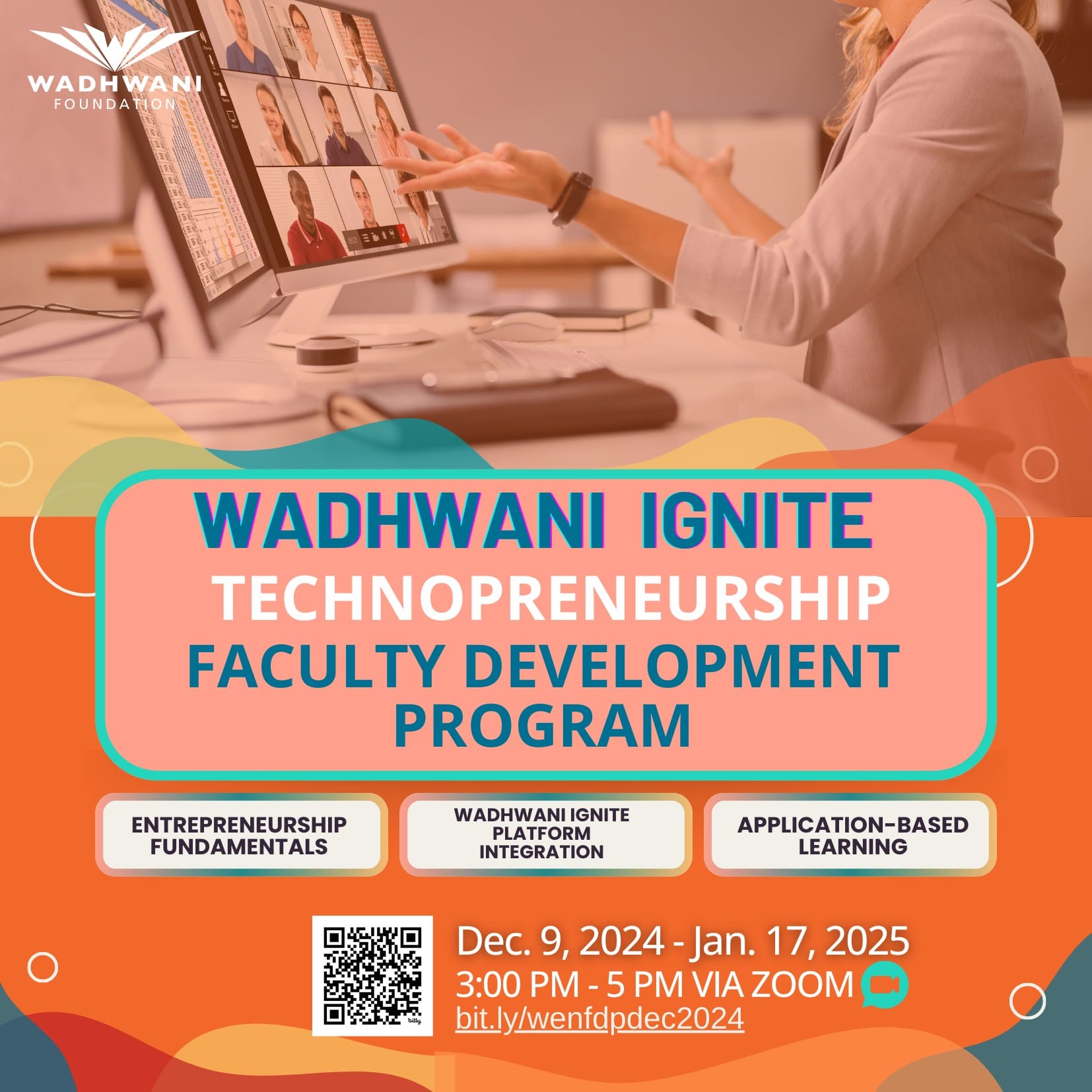
Introduction
The “Youth Techno‑entrepreneurship” series, in collaboration with Mastercard Foundation, shines a spotlight on young entrepreneurs from Nigeria, Ghana, and Kenya who are advancing economic growth through innovation in green technology.
These young entrepreneurs are developing cutting-edge green tech projects that are transforming their communities and contributing to a more sustainable future.
For more: https://africaciviclens.com/
Overview of the Green Technology Initiative
This media series aims to highlight inspiring community stories where creativity meets institutional support. By documenting the journeys of each founder in depth, the series uncovers the challenges they faced, their strategies to overcome them, and their recommendations for scaling the impact of their projects.
The initiative focuses on the nexus between youth empowerment, technological innovation, and environmental sustainability, reflecting the growing importance of green technologies in Africa’s economic development.
Innovation in Nigeria
Nigeria stands out with young entrepreneurs pioneering solar energy solutions and waste management technologies.
- Ahmed Obonga founded a company in Lagos that generates electricity from organic waste using biogas technology. His venture converts municipal organic waste into renewable energy, providing affordable electricity to underserved communities.
- Sheila Akandi launched a remote sensing platform to monitor solar power grids in rural areas. This innovation helps maintain and optimize solar infrastructure, ensuring consistent power supply in off-grid regions.
Both projects have received direct support from the Mastercard Foundation, which provided training and funding during the pilot phases, enabling the entrepreneurs to refine their technologies and business models.
Sustainable Projects in Ghana
Ghana’s innovation landscape includes smart agriculture and clean energy initiatives:
- Kingston Nkommo introduced vertical farming in the outskirts of Accra, powered entirely by solar energy. This approach conserves water, optimizes land use, and produces fresh vegetables year-round.
- Nadia Adams founded a mobile solar-powered charging network for electric bicycles, promoting eco-friendly transportation solutions in urban and peri-urban areas.
The founders noted challenges in accessing traditional bank financing, highlighting the critical role of supportive institutions like the Mastercard Foundation in providing alternative financial and technical resources.
Green Transformations in Kenya
Along Kenya’s Indian Ocean coast and inland regions, young innovators are crafting smart sustainability solutions:
- Mariam Wangari developed a solar-powered water filtration system for remote communities lacking access to clean drinking water. Her solution uses renewable energy to improve health outcomes and reduce waterborne diseases.
- Jimmy Mwinti created a smart precision agriculture app that leverages Internet of Things (IoT) technology to enhance crop yields and resource efficiency.
These projects benefited from early-stage support and development programs, including local training networks and financial workshops that encouraged scaling and replication.
Challenges and Opportunities
Despite progress and social impact, young green tech entrepreneurs face key challenges:
- Limited access to long-term capital: Funding often remains short-term, misaligned with the extended growth cycles of green ventures.
- Insufficient technological infrastructure: Weak or unstable internet connectivity hampers operations in many rural areas.
- Inadequate government policies and incentives: Bureaucratic hurdles and lack of supportive legislation slow project establishment and expansion.
However, experts emphasize promising opportunities:
- Growing international interest in climate action opens new financing avenues for sustainable projects.
- Advances in technology and increased environmental awareness empower youth to create meaningful change.
Support Needed to Scale Projects
Key recommendations from the series include:
- Financial and tax incentives: To encourage partnerships between investors and green startups.
- Technical support: Providing research training, sustainability technologies, and access to cutting-edge tools.
- Regulatory facilitation: Enacting flexible laws to protect and empower green enterprises.
- Regional collaboration networks: Facilitating knowledge exchange and best practices across Nigeria, Ghana, and Kenya.
The Role of Mastercard Foundation
Through its partnership with these ventures, Mastercard Foundation has:
- Provided grants and technical assistance.
- Organized capacity-building workshops.
- Launched a marketplace connecting startups with potential investors.
As a result, around 50 startups have been established, including 20 at advanced technical scaling stages, forming a robust foundation for continued green innovation.
Founders’ Stories: Success and Impact
The series features exclusive interviews with founders who are making a difference:
- Ahmed Obonga stated, “Turning waste into energy is a small step, but it changes the face of communities.”
- Mariam Wangari added, “With simple support, we can secure water and promote growth simultaneously.”
Their narratives exemplify how grassroots innovation can address pressing environmental and social issues.
How You Can Contribute
As climate change continues to reshape global priorities, green entrepreneurship has emerged as a vital solution to many of the continent’s environmental and economic challenges. In Africa, where youth make up over 60% of the population, the rise of eco-conscious innovation is not just a trend—it’s a movement. But this transformation needs more than just ideas. It requires collective action, collaboration, and investment.
Whether you’re a business developer, an investor looking for meaningful opportunities, or a young person passionate about sustainability, there are numerous ways you can contribute to the green tech ecosystem in Africa.
Below are practical and strategic steps you can take to help nurture and grow this dynamic sector.
1. Join the Mastercard Foundation’s Entrepreneurship Programs
The Mastercard Foundation has been a key catalyst in empowering Africa’s youth through skills development, access to finance, and entrepreneurial incubation. By joining its various green and youth-focused programs, you can become part of a network that’s shaping the continent’s future.
For Young Entrepreneurs
If you are a student, recent graduate, or aspiring entrepreneur, the Foundation offers structured programs that include:
- Green business incubators
- Technical and vocational education and training (TVET)
- Start-up grants and seed capital
- Mentorship from industry leaders
For example, through the Young Africa Works initiative, the Foundation has committed to helping 30 million young people in Africa secure dignified and fulfilling work by 2030, with a significant focus on sustainability-related industries such as clean energy, sustainable agriculture, and circular economy.
For Business Developers and Mentors
If you’re a seasoned entrepreneur or business developer, you can contribute as:
- A mentor, offering practical guidance to young startups.
- A trainer, helping to deliver workshops on entrepreneurship, product development, or financial planning.
- A judge or advisor in business competitions and pitch events.
This type of involvement provides not only personal fulfillment but also exposure to emerging markets and innovative ideas with strong potential for impact and scale.
2. Participate in Regional Green Tech Workshops and Conferences
As Africa navigates the dual challenges of climate change and economic transformation, regional green technology workshops and conferences have emerged as powerful platforms for progress. These events are more than just gatherings—they are incubators for collaboration, skill-building, ideation, and investment. They bring together the diverse stakeholders required to accelerate sustainable development: policymakers, entrepreneurs, scientists, technologists, NGOs, and investors.
Participation in such forums—whether physical or virtual—is not only beneficial for individuals looking to expand their knowledge or networks. It’s also critical to building a unified, actionable roadmap for a greener Africa.
Why Green Tech Events Matter Now More Than Ever
Africa is uniquely positioned to become a global leader in green technology. It has abundant renewable energy resources, an increasingly youthful and tech-savvy population, and mounting climate pressures that require urgent solutions.
However, while there is no shortage of talent or need, what often holds innovation back is fragmentation—ideas remain isolated, funding doesn’t reach the right people, and policymakers operate without consistent feedback from the ground.
This is where regional green tech workshops and conferences step in as critical bridging mechanisms. They create ecosystems of trust, dialogue, and action.
What Participants Can Expect
Engaging in these forums opens doors to a broad spectrum of opportunities—practical, professional, and strategic.
1. Hands-On Training and Capacity Building
Workshops are often designed to offer technical training tailored to current sustainability challenges in Africa. Participants can gain practical experience in areas such as:
- Solar energy systems design and maintenance
- Bio-waste management and conversion
- Water purification using low-cost, sustainable technologies
- Climate-resilient agricultural practices, such as drip irrigation, vertical farming, and smart greenhouses
For example, a bootcamp held in Nairobi in 2023 offered hands-on sessions on building solar-powered microgrids for off-grid communities. Attendees learned to assess energy needs, design basic systems, and implement monitoring tools—all in less than a week.
2. Networking with the Ecosystem
Another core advantage is the opportunity to connect with like-minded innovators, investors, NGOs, and government representatives. These interactions often lead to long-term partnerships, mentoring relationships, and even co-founding opportunities.
A young innovator from Uganda, for instance, met an impact investor from South Africa at the Green Africa Summit and secured $25,000 in seed funding six months later to launch a low-cost irrigation tech for rural farmers.
These real-world connections are not incidental—they are designed into the structure of most green tech forums through:
- Speed networking sessions
- Roundtable discussions by sector (e.g., energy, agriculture, finance)
- Innovation showcases and “demo days”
3. Funding Opportunities and Exposure
Most conferences include pitch competitions or grant challenges, where participants can present their startups or ideas to a panel of judges, often including venture capitalists, angel investors, and representatives from development organizations.
Winning isn’t the only goal—just being part of these sessions provides massive visibility. In many cases, even those who don’t walk away with a grant end up forming strategic alliances or receiving feedback that improves their business models.
Notable examples include:
- Greenovation Challenge (Ghana), which awarded over $100,000 in 2024 to youth-led sustainability ventures
- The Africa GreenTech Connect, which connects 50+ African green tech startups annually with potential funders from Europe and Asia
These competitions also incentivize innovation by providing validation, media exposure, and credibility.
4. Access to Policy Dialogues and Influencers
Workshops often bring together not just the doers, but also the decision-makers. Attendees get the chance to influence policy conversations around clean energy, land use, urban planning, and climate adaptation.
At the African Union Climate Innovation Forum, held annually in Addis Ababa, youth participants co-drafted a youth-led green entrepreneurship policy framework now being reviewed by multiple national governments.
This ability to contribute to high-level dialogues ensures that policies are informed by local realities—not just international agendas.
Case Study: Africa Climate Week
One of the continent’s most prominent sustainability events, Africa Climate Week, is organized under the auspices of the UNFCCC and brings together thousands of stakeholders from across Africa and beyond.
It focuses on key thematic areas such as:
- Energy transition
- Nature-based solutions
- Resilient infrastructure
- Green finance and innovation
During the 2024 edition held in Nairobi, the event featured over 100 sessions, including:
- Youth innovation showcases
- Women in Green Tech panels
- Ministerial roundtables
- Climate action hackathons
Participants not only learned about the latest trends in carbon markets and green hydrogen but also engaged in workshops on fundraising and scaling eco-enterprises.
This multi-level design ensures that both grassroots innovators and global leaders have a space to contribute and collaborate.
Digital Inclusion: The Rise of Virtual Workshops
With the increased digitization of events post-COVID-19, many conferences are now hybrid or fully virtual—broadening access to those who might not have the resources to travel.
Virtual workshops often offer:
- Webinars with leading sustainability experts
- Live Q&A with investors or successful entrepreneurs
- Interactive mentorship rooms
- Digital pitch competitions judged via Zoom or online portals
Platforms like Hopin, Whova, and Airmeet have made it easier to host seamless virtual conferences with global participation.
A young female entrepreneur from Sierra Leone recently credited her success to a virtual pitch session hosted by the UNDP Youth Green Accelerator. Without leaving her village, she pitched her idea for solar-powered fish dryers—and won a $10,000 startup grant.
How to Get Involved
1. Find the Right Events
Start by following relevant organizations and platforms. Some to keep an eye on:
- Africa Climate Week
- Greenpreneurs Africa
- African Development Bank Green Growth Events
- Climate Innovation Centre Kenya
Also monitor university-led initiatives like those from Ashesi University (Ghana) or Strathmore Energy Research Centre (Kenya).
2. Prepare to Participate
To make the most of these events:
- Refine your elevator pitch and practice it
- Bring samples or demos of your product if available
- Have a one-page business summary ready
- Engage on social media using event hashtags
- Follow up promptly with contacts you meet
Remember: these forums are not just about learning—they’re about positioning yourself as a contributor and leader.
A Collective Opportunity
Africa’s green transformation will not be driven by one hero, one solution, or one country. It will be the result of networks of people working together across borders, sectors, and disciplines. Regional workshops and conferences are where these networks begin.
By participating in these events, you’re not just building a better future for your startup or your career—you’re helping shape the continent’s response to one of humanity’s greatest challenges.
And in doing so, you take your place in a growing movement—one where innovation meets climate action, and ambition meets opportunity.
Virtual Participation
Many of these workshops are now available online, allowing people from across the globe to engage, share knowledge, and contribute without the need to travel. This widens the scope for diaspora Africans, international mentors, and global funders to actively participate in the movement.
3. Engage With Communities Like Greenpreneurs Africa
Collaboration is a core pillar of sustainable development. Communities like Greenpreneurs Africa are playing a vital role by creating digital and physical spaces where eco-minded individuals can connect, learn, and innovate together.
What is Greenpreneurs Africa?
It is a pan-African community of young changemakers, professionals, and investors dedicated to advancing green entrepreneurship. Their platform facilitates:
- Webinars and training on topics like environmental law, carbon finance, and eco-friendly business models.
- Peer mentoring opportunities that allow newer entrepreneurs to learn from more established peers.
- Access to a knowledge hub, including tools, templates, case studies, and funding directories.
- Collaborative project incubation, where members can co-develop ideas, form partnerships, and apply for joint grants.
Greenpreneurs Africa also acts as a matchmaking platform between startups and investors who are specifically interested in ESG (Environmental, Social, and Governance)-aligned ventures.
4. Invest in Green Startups
If you’re an investor looking to make a difference, Africa’s green tech sector offers high-potential opportunities—both in terms of impact and returns.
Why Invest in Green Tech?
- Rapidly growing market: Africa’s energy demand is expected to double by 2040. Clean energy, water tech, and climate-smart agriculture are all booming sectors.
- Favorable demographics: The continent has a large, youthful population eager to innovate and adopt sustainable solutions.
- Policy alignment: Many African governments are now developing national strategies for climate action and green economy transitions, which supports long-term investments.
Investors can engage through:
- Angel investments in early-stage startups
- Impact funds that target climate-smart businesses
- Crowdfunding platforms that support African green entrepreneurs
Some notable impact investment funds in this space include Acumen, Africa Go Green Fund, and Blue Haven Initiative, which actively support environmentally sustainable startups on the continent.
5. Advocate for Green Policy and Ecosystem Development
Change also requires structural support. By engaging in advocacy and policy influence, you can help build an enabling environment for green entrepreneurship.
What Can You Do?
- Join working groups or public forums focused on green policy reforms.
- Collaborate with universities and think tanks to produce research that informs policy makers.
- Raise awareness through storytelling, blogs, and social media campaigns to highlight the importance of green innovation.
As an example, contributing to campaigns for reduced import taxes on solar panels or government grants for eco-startups can have a massive trickle-down effect on the entrepreneurial ecosystem.
6. Support Through Education and Training
Whether you’re an academic, an educator, or a curriculum developer, there’s a vital role to play in shaping the next generation of green entrepreneurs.
Consider:
- Integrating sustainability into business education
- Developing training modules for vocational schools
- Launching online courses or YouTube channels that teach practical green tech skills
Digital education platforms like Coursera, EdX, and FutureLearn also offer partnership opportunities for those looking to build content aimed at African learners.
Green entrepreneurship is not just about protecting the environment—it’s about building resilient economies, creating jobs, and securing a livable future for millions. Africa stands at a unique crossroad where its youthful energy, rich natural resources, and emerging tech capabilities can converge to lead a global sustainability revolution.
But this cannot happen in isolation. It requires the participation of a wide array of stakeholders: the dreamers, the doers, the funders, and the enablers. Whether you choose to mentor, invest, train, or simply connect with like-minded people, your role is indispensable.
The future of Africa’s green tech ecosystem is being written today—and you can be one of its authors.
Conclusion
The “Youth Techno‑entrepreneurship” series demonstrates how Africa’s youth are placing innovation and sustainability at the heart of economic development. Their stories remind us that the green future begins today, relying on the right mix of financial and intellectual support to make real transformation possible.
Further Reading and Resources
- Mastercard Foundation Official Website – Learn more about their programs supporting African entrepreneurs.
- Greenpreneurs Africa – A network for young green innovators across Africa.
- United Nations Sustainable Development Goals – Global framework for sustainable development, including climate action and clean energy.
- World Bank – Climate Change Overview – Insights into financing and supporting climate-resilient development.
- Clean Energy Solutions Center – Resources and training on clean energy technologies.
- African Development Bank – Green Growth – Initiatives promoting sustainable economic growth across Africa.
The post by: https://afripoli.org




